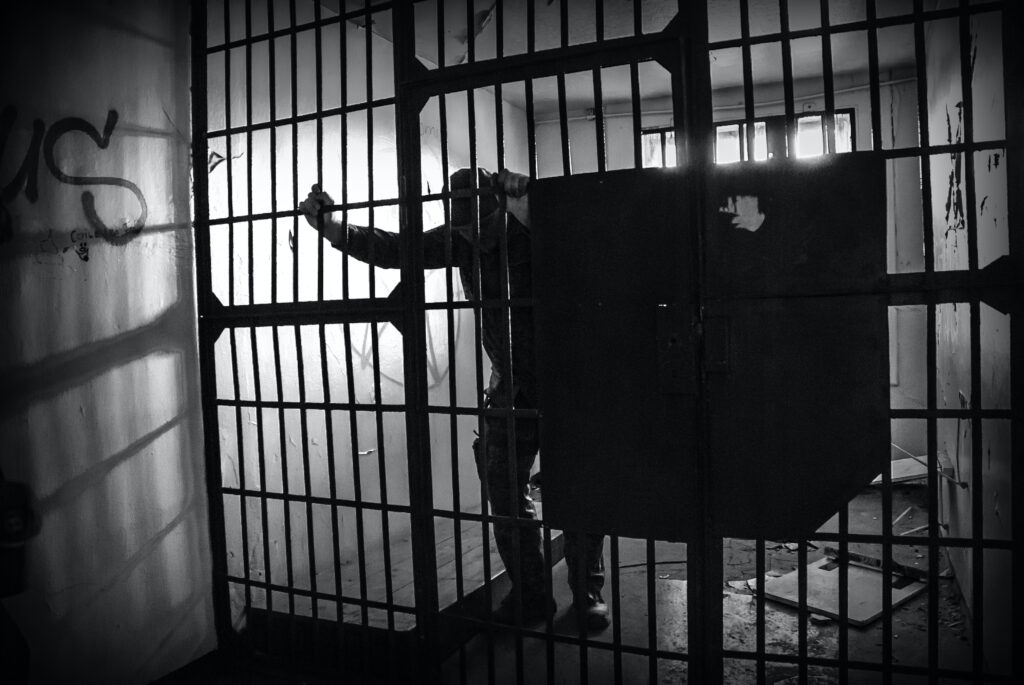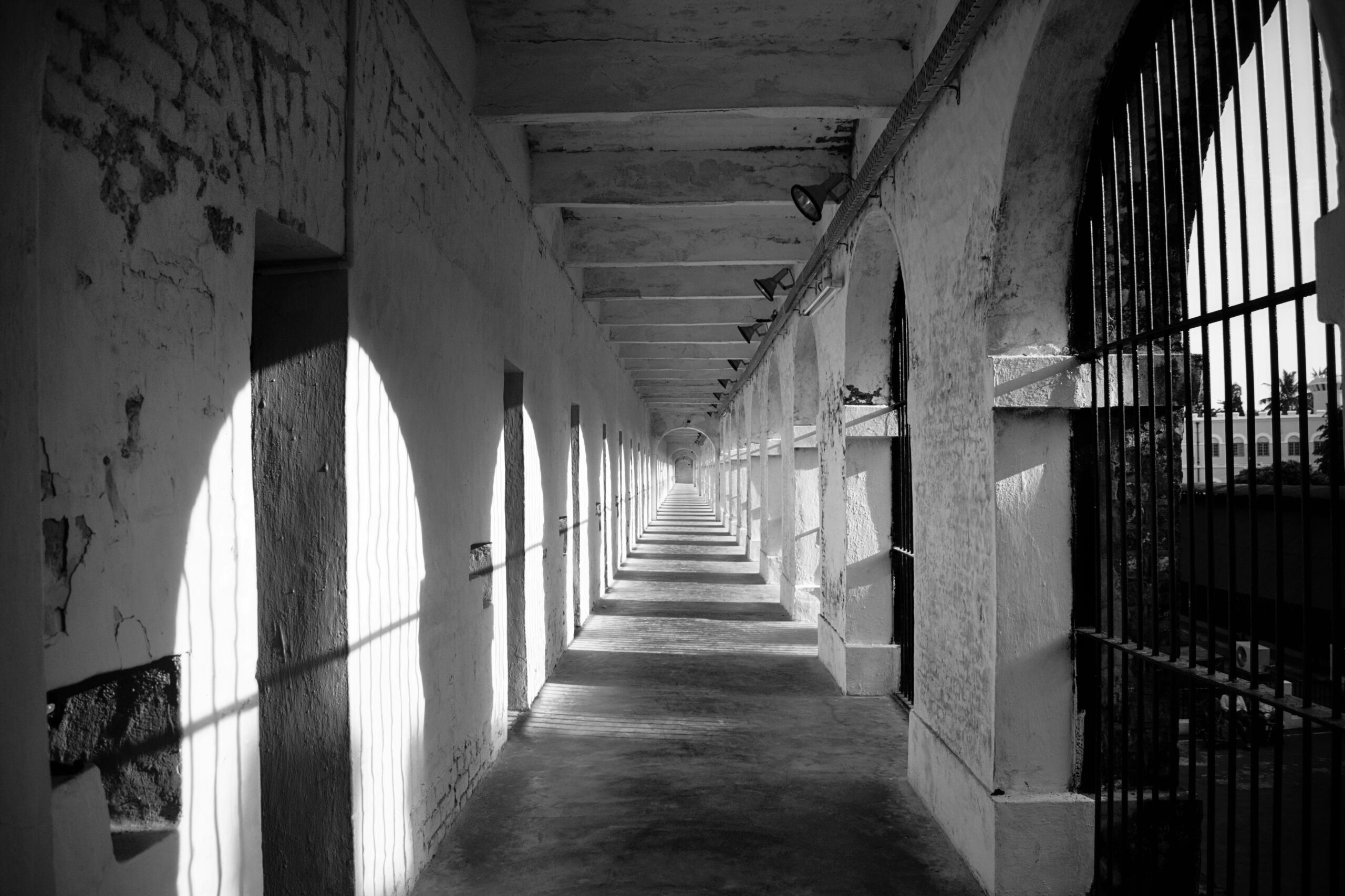Most countries consider life imprisonment to be a harsher form of punishment than a fixed-term sentence because it does not allow for easy parole or early release. This means that unless they receive a presidential pardon, commutation, or clemency, a person sentenced to life imprisonment will spend the rest of their life in prison.
The use of life imprisonment has sparked much debate and controversy. Life imprisonment supporters argue that it deters crime, provides retribution for serious crimes, and protects society by removing dangerous individuals from the community.
Also Read: What is Posh Act 2013 ? Sexual Harassment of Women in the Workplace ?
What Is Life Imprisonment in India ?
A life sentence, also known as life imprisonment, is a type of sentence imposed by a court of law in which an individual is imprisoned for the rest of their life. This is typically reserved for the most heinous crimes, such as murder, treason, or terrorism.
Life imprisonment is used differently in different countries. Life imprisonment is a common form of punishment for serious crimes in some countries, such as the United States. Life imprisonment is uncommon in other countries, such as Sweden, and is only imposed in exceptional circumstances.
What is the Law on Life Imprisonment in India?
Life imprisonment is a form of punishment in India, where an individual is sentenced to serve the remainder of their life in prison. It is typically imposed for the most serious crimes, such as murder, treason, or terrorism. In India, life imprisonment is considered a harsher form of punishment than a fixed-term sentence, as it offers no possibility of parole or early release.
Section 53 in The Indian Penal Code
53. Punishments.—The punishments to which offenders are liable under the provisions of this Code are—
(First) — Death; 1[Secondly.—Imprisonment for life;] 2[***]
(Fourthly) —Imprisonment, which is of two descriptions, namely:—
(1) Rigorous, that is, with hard labour;
(2) Simple;
(Fifthly) —Forfeiture of property;
(Sixthly) —Fine.
The Indian Penal Code (IPC) outlines the provisions for life imprisonment in India. According to the IPC, life imprisonment is defined as
“Imprisonment for the remainder of that person’s natural life.” In India, life imprisonment can either be with or without the possibility of parole.”
In recent years, India has seen an increase in the use of life imprisonment, particularly in cases involving violent crimes and terrorism. The Indian government’s tough stance on crime and commitment to ensuring the safety and security of its citizens has fueled this trend.
However, for a variety of reasons, the use of life imprisonment in India has been criticised. Life imprisonment, critics argue, is frequently used as a form of racial and economic discrimination, and it does not allow for rehabilitation or redemption. Furthermore, the Indian prison system is overcrowded and insufficiently equipped, making life imprisonment a harsh and inhumane form of punishment.
| SL. No | Section | Offense | Punishment |
| 1 | 121 | Waging, abetting against the government of india. | Life imprisonment and death sentence. |
| 2 | 132 | Abetment is committed in other consequences. | Death and life sentence for 10 years or fine |
| 3 | 194 | False evidence shown in the court during the court proceedings. | Death sentence, life imprisonment and fine can be charged as decided by the court. |
| 4 | 302 | Murder is mentioned in this article. | Death sentence, life imprisonment. |
| 5 6 7 | 303 364A 396 | Dacoity in murder or more number of murders are caused. | Death sentence or life imprisonment or fine. |
Despite these criticisms, life imprisonment remains a commonly used form of punishment in India, and it is unlikely to be abolished in the near future. In the absence of alternatives, the Indian government continues to rely on life imprisonment as a means of punishing those who commit serious crimes and protecting society from dangerous individuals.
The provision of life imprisonment in India includes the following key elements:
Imprisonment For The Remainder Of Life
An individual sentenced to life imprisonment will serve the remainder of their life in prison, unless they receive a presidential pardon, commutation, or clemency.
With Or Without The Possibility Of Parole
Life imprisonment can either be with the possibility of parole, where the individual may be eligible for parole after a certain number of years in prison, or without the possibility of parole, where the individual will never be released from prison.
Sentencing Discretion
The decision to impose life imprisonment is left to the discretion of the court and is based on the severity of the crime and the circumstances of the case.
Reappearance before Parole Board
In cases where life imprisonment is imposed with the possibility of parole, the individual may have to appear before a parole board after a certain number of years in prison. The parole board will then decide whether to grant or deny parole based on factors such as the individual’s conduct and behavior while in prison, the nature of the crime, and the threat to public safety.
Also Read: शिकायत पर कार्रवाई नहीं कर रही पुलिस ? क्या है CrPC की धारा 200?
What Is Objectives/Purpose of Life Imprisonment In India?
The objectives of life imprisonment include:
Deterrence
To serve as a deterrent to others who may consider committing similar crimes.
Retribution
To hold the convicted person accountable for their actions and provide a form of retribution for the victims and society.
Public Safety
To protect society by keeping dangerous criminals locked up for the rest of their natural life.
Rehabilitation
To provide opportunities for the convicted person to reform and develop positive behavior patterns through educational and therapeutic programs offered in prison.
Denunciation
To publicly condemn the actions of the convicted person and signal the seriousness of the crime committed.

Overall, the main objective of life imprisonment in India is to serve as a means of punishment and deterrent for individuals who have committed serious crimes, while also offering opportunities for rehabilitation and reform.
Landmark Judgement on Life Imprisonment India
In India, there have been several landmark decisions concerning life imprisonment, and the Hon’ble Supreme Court has issued observations in light of ongoing issues and concerns from time to time. The purpose of life imprisonment was to keep prisoners away from society because it is difficult to change their behavior toward society and they have no intention of respecting society or other life. Here are some of the landmark judgements on life imprisonment in India:
Bhagalpur Blindings case (1983)
Several prisoners were blinded in the Bhagalpur jail in Bihar. The Supreme Court ruled that blinding prisoners was unconstitutional and violated their fundamental rights, and that life imprisonment should be interpreted as actual imprisonment for the rest of the prisoner’s life.
Read Citation: Khatri And Others vs State Of Bihar & Ors on 19 December, 1980
The Supreme Court ruled in the decision that life imprisonment in India should be interpreted as actual imprisonment for the rest of the prisoner’s life, rather than a theoretical imprisonment that can be reduced or commuted. The Court also ruled that blinding was cruel, inhuman, and degrading, and that it violated the Indian Constitution’s prohibition on cruel, inhuman, and degrading punishment.

The Bhagalpur Blindings case had a significant impact on the interpretation of life imprisonment in India and established the principle that life imprisonment should be interpreted as actual imprisonment for the remainder of the prisoner’s life. It also established the principle that punishments that are cruel, inhuman, or degrading are unconstitutional and violative of the prohibition of cruel, inhuman, and degrading punishment under the Indian Constitution.
Bachan Singh v. State of Punjab (1980)
The Supreme Court in this case laid down the principles for imposing the death penalty and held that it should be imposed only in the “rarest of rare” cases. The judgement also clarified that life imprisonment should be the rule and death penalty an exception.
Read Citation: Bachan Singh vs State Of Punjab on 9 May, 1980 SCC 24
Rajiv Gandhi Assassination case (1999)
The Supreme Court upheld the award of life imprisonment for the accused in the assassination of former Prime Minister Rajiv Gandhi, and held that life imprisonment means actual imprisonment for the remainder of the prisoner’s life.
Read Citation: State Of Tamil Nadu Through … vs Nalini And 25 Others
Santosh Bariyar v. State of Maharashtra (2009)
The Supreme Court in this case held that the power to grant parole or remission to a life convict is not an absolute right, and that the decision should be based on the circumstances of the case and the prisoner’s conduct in prison.
Read Citation: Santosh Kumar Satishbhushan … vs State Of Maharashtra
Dhananjoy Chatterjee case (1994)
The Supreme Court in this case upheld the award of death penalty to the accused for the rape and murder of a schoolchild, and held that life imprisonment may be inadequate in cases where the crime is heinous and the accused is a danger to society.
Read Citation: Dhananjoy Chaterjee vs State Of W.B
These landmark judgements have shaped the interpretation of life imprisonment in India and established key principles, such as the fact that life imprisonment means actual imprisonment for the remainder of the prisoner’s life, that death penalty should be imposed only in the “rarest of rare” cases, and that the power to grant parole is not an absolute right.
FAQ
What is Life Imprisonment Duration in India? Or How Long Is Life Imprisonment In India
As per Hon’ble Supreme Court in Gopal Vinayak Godsey vs State of Maharashtra (AIR 1961).
“Life imprisonment” in India refers to imprisonment for the rest of a convicted person’s natural life. A life sentence has no set number of years, and the individual is imprisoned until they die.
What Is Double Life Imprisonment In India?
In India, “double life imprisonment” means that a person has been sentenced to two consecutive terms of life imprisonment. In other words, the person will be imprisoned for the rest of their natural life, with the two life sentences running concurrently. The length of a double life sentence is determined by the natural life of the convicted person.
What Is The Difference Between Capital Punishment And Life Imprisonment?
The main difference between capital punishment and life imprisonment is that the former results in the death of the convicted person, while the latter results in the person being incarcerated for the remainder of their life.
What is the Objective of Life Imprisonment?
May read above
Is Life Imprisonment for Rest of the Life or 20 Years or 14 Years?
“life imprisonment” refers to imprisonment for the remainder of a convicted person’s natural life. There is no set number of years for a life sentence, and the individual remains in prison until they die. The sentence does not end after 20 years or 14 years, but continues for the rest of the person’s life.
Conclusion
Finally in Conclusion to submit, life imprisonment is a type of sentence imposed by a court of law that requires a person to spend the rest of their life in prison. Life imprisonment is used differently in different countries, and it has been the subject of much debate and controversy, with both supporters and detractors presenting compelling arguments.
In India, life imprisonment is a type of punishment that requires a person to spend the rest of their life in prison. It is a harsher form of punishment than a fixed-term sentence and is usually reserved for the most serious crimes. Despite criticism, the use of life imprisonment in India is unlikely to be phased out in the near future because it serves as a means of punishing those who violate the law.
Disclaimer
The views expressed in the blogs are purely the authors’ own, and they are not intended to offend anyone or to be prejudicial toward or against any individual, group of individuals, society, sex, gender, race, creed, nation, or religion, or any other term that is even remotely and closely connected. Legal-Varta is a platform for disseminating knowledge so that everyone can comprehend the legal system better. In order to avoid any misrepresentation and since it is even not advisable to do so, only content that is directly related to the Law and Statute is included in the articles. If any misrepresentation is discovered, however, we are willing to amend it because it is only for everyone’s advantage.


[…] Read Also: What is Life Imprisonment And Provisions under IPC 1860? […]